Describe a Skill that You Learned in Your Childhood – IELTS Speaking Part 2 Sample Answers
12 min read
Updated On
-
Copy link
Use the IELTS cue card topic, ‘Describe a Skill that You Learned in Your Childhood’, to hone your speaking abilities and achieve a band 8+ score. Get a list of vocabulary terms, answers for Part 2 and 3 to learn how to ace the IELTS Speaking test.
Table of Contents
- Describe a Skill that You Learned in Your Childhood IELTS Speaking Part 2 Question & Sample Answers
- Describe a Skill that You Learned in Your Childhood - IELTS Cue Card Sample Answer 1
- Describe a Skill that You Learned in Your Childhood - IELTS Cue Card Sample Answer 2
- Describe a Skill that You Learned in Your Childhood - IELTS Cue Card Sample Answer 3
- Vocabulary You Can Use For IELTS Speaking Part 2 Questions on Describe a Skill that You Learned in Your Childhood
- Describe A Skill That You Learned In Your Childhood Follow Ups
- Vocabulary for Describe a Skill that You Learned in Your Childhood IELTS Follow-up Questions
- Tips to Answer Describe a Skill that You Learned in Your Childhood IELTS Cue Card

Limited-Time Offer : Access a FREE 10-Day IELTS Study Plan!
Childhood is a time of learning and exploration, where we acquire valuable skills that shape our future. So, the child cue card, Describe a Skill that You Learned in Your Childhood, provides you an opportunity to share your experiences and describe a skill you learned in your childhood.
In this blog, you will find three high-scoring sample answers for Part 2 topic, Describe a skill that you learnt in your childhood , useful vocabulary, and tips to help you confidently discuss this topic in your IELTS Speaking exam. Let’s get started!
Describe a Skill that You Learned in Your Childhood IELTS Speaking Part 2 Question & Sample Answers
In IELTS Speaking Part 2, you will have exactly one minute to prepare before speaking on the topic. So, explore the sample answers to describe a skill you learned in your childhood, that will help you structure your response effectively.
Before you start, take a look at the introduction to Speaking Part 2 below!
Describe a Skill that You Learned in Your Childhood.
You should say:
- What skill it was
- Who taught you this skill
- How you learned it
- And explain why you learned this skill.
Describe a Skill that You Learned in Your Childhood - IELTS Cue Card Sample Answer 1
- What skill it was
We pick up numerous skills and talents as we grow up. Although we do not use every skill we learn, some of these capabilities are valuable assets. One skill that I learned as a child is how to sew. This skill is quite an uncommon skill, especially among men. Nevertheless, it has proven beneficial since I learned it.
- Who taught you this skill
I learned how to sew from my grandmother, who used to stay with us until quite recently. My grandmother used to knit and sew almost every day. She was an expert and used to sew clothes and make beautiful quilts and pillowcases. Although I could never sew as good as my grandmother, I learned some basic sewing skills from her during my childhood.
- How you learned it
It did not take long for me to grasp the basics of this craft. However, sewing is a skill that one can master only through rigorous practice. After teaching me the fundamentals, my grandmother would ask me to sew something to test what I had learned. Then, she would examine me for weeks before teaching me something new. Sometimes the activities my grandmother made me do were boring, and other times they were interesting.
- And explain why you learned this skill.
Initially, I did not have any desire to learn sewing. But, since both my parents are working professionals, my grandmother used to look after me when my parents were not around. So, she taught me how to sew to pass the time. It has helped me several times, like mending broken buttons, fixing torn t-shirts, etc.
Are you having difficulty speaking for IELTS Speaking Part 2 cue cards like this one?
Describe a Skill that You Learned in Your Childhood - IELTS Cue Card Sample Answer 2
Sample Audio
Click on the audio to listen to the sample answer for 'A skill you learned when you was a child' below. Pay attention to the intonation and pronunciation of the words.
- What skill it was
Childhood is always memorable to me. There are many things that I have learned from that period that benefit me until now.
To be honest, when I was small, I was quite weak. As I often got sick, my parents didn’t allow me to go out much, especially in extreme weather like summer or winter. Therefore, my parents sent me to a piano class in my neighborhood when I was 8.
- Who taught you this skill
My piano teacher was around my aunt’s age, thus, I enjoyed calling her “auntie”. She was kind and generous to me, though I didn’t pick up the lessons well enough. Luckily, she was very experienced and enthusiastic. Thus, she tried her best to teach me every single lesson. With those efforts, I finally found the piano lessons soothing and inspiring, beginning to play them better and better.
- How you learned it
Gradually, I began to fall in love with piano sounds and practiced them from time to time. After 2 years, I had made a great improvement in comparison with the first days. At the age of 12, I got an opportunity to join a piano contest for Secondary school students. Though I didn’t get any prize, it was a good reward for all of the efforts I had put on it. My teacher was really proud of me.
- And explain why you learned this skill.
Until now, after 10 years, the piano still accounts for an integral part of my life. It helps me to get over tough situations, even under great pressure. Playing the piano is a good way for me to relax and refresh my mind.
Describe a Skill that You Learned in Your Childhood - IELTS Cue Card Sample Answer 3
- What skill it was?
One of the most valuable skills I learned as a child was swimming. I started learning this skill when I was around six years old, and it has remained an essential part of my life ever since.
- Who taught you this skill?
My father was the one who taught me how to swim. He was an excellent swimmer himself and believed that swimming was not just a recreational activity but also an important life-saving skill. During our summer vacations, he would take me to a nearby swimming pool, where he patiently guided me through the basics. At first, I was a bit afraid of deep water, but with his encouragement, I gradually gained confidence.
- How you learned it?
The learning process was both exciting and challenging. Initially, I practiced in the shallow end of the pool, getting used to floating and kicking my legs. My father taught me basic strokes like the freestyle and backstroke, and later, I moved on to more advanced techniques like the breaststroke and butterfly stroke. Over time, I improved my stamina and coordination, which helped me become a stronger and more efficient swimmer.
- And explain why you learned this skill.
I learned this skill for multiple reasons. Firstly, my parents wanted me to be water-safe and feel confident in the water. Secondly, swimming is a fantastic full-body workout, and developing this skill at an early age helped me maintain a healthy and active lifestyle. Lastly, swimming has always been a stress-relieving activity for me, and I continue to enjoy it as a hobby even today. Looking back, I feel incredibly grateful that I learned swimming as a child as it has given me a sense of independence, fitness, and confidence in water-based activities.
Boost your IELTS Speaking score with expert guidance—join our online webinar now!
Vocabulary You Can Use For IELTS Speaking Part 2 Questions on Describe a Skill that You Learned in Your Childhood
For a good speaking score, you need to use appropriate language, particularly when answering to describe a skill you learned in your childhood cue cards. Thus, check the list of words and expand your latest IELTS Speaking vocabulary to boost your score.
|
Word/Phrase |
Meaning |
Example Sentence |
|---|---|---|
|
Assets |
something that is owned by a person, company, or organization, such as money, property, or land |
Maan Singh lost all his assets to the bank fraud. |
|
Rigorous |
done very carefully and with great attention to detail |
After rigorous practice, he finally won the competition. |
|
Memorable |
worth remembering or easily remembered, especially because of being special or unusual |
This victory was one of the most memorable in his career. |
|
Extreme weather |
really bad weather or weather on a larger, more serious and devastating scale |
Summer is considered extreme weather because it is very hot. |
|
Enthusiastic |
excited, having a positive and upbeat attitude |
He is an enthusiastic swimmer, he swims every day for 2 hours. |
|
Soothing |
relaxing, usually something soft and quiet |
She put on some soothing music and took a bath. |
|
Inspiring |
motivates you to do something |
The speech the President gave turned out to be so inspiring that the workers decided to stop their strike. |
|
Recreational |
connected with ways of enjoying yourself when you are not working |
We undertook some recreational activities every weekend. |
|
Stamina |
the ability to do something that involves a lot of physical or mental effort for a long time |
His stamina helped him to win the difficult race. |
Describe A Skill That You Learned In Your Childhood Follow Ups
Given below are the sample answers to IELTS Speaking Part 3 questions related to the cue card, Describe a skill that you learnt in your childhood, with expert-curated sample answers and vocabulary that you can use in your own responses.
- How have the skills you learned in childhood added value to your life?
The skills I acquired during childhood have been invaluable assets in my personal and professional life. For example, picking up public speaking skills early on has greatly improved my communication abilities, making it easier to express myself in academic and professional settings. I believe childhood skills often lay the foundation for lifelong learning, problem-solving, and adaptability, which are essential in various aspects of life.
- Have you had the chance to pass on this skill to others, such as teaching it to younger family members or friends? If so, what was that experience like?
Yes, I have had the privilege of mentoring my younger cousins in swimming. Teaching them was a gratifying yet challenging experience because children often have a natural fear of water. I had to be patient and encouraging, ensuring they felt safe and comfortable while learning. Seeing their progress and confidence in the water was extremely rewarding.
- Where do children learn skills in your country?
In my country, children learn skills through a variety of sources. Schools play a pivotal role, offering both academic and extracurricular activities like sports, music, and art. Parents also play a crucial role in nurturing practical skills at home, such as cooking, problem-solving, and basic life management. Additionally, many children take part in hobby classes, summer camps, and online courses, where they develop technical and creative skills like coding, painting, and public speaking. With the advancement of technology, e-learning platforms have also become a popular medium for skill development.
- What are the differences between children’s and adults’ learning skills?
To begin with, children are more receptive and flexible, allowing them to absorb information quickly, especially when learning languages, musical instruments, or sports. They also learn best through play, hands-on activities, and imitation. In contrast, adults often rely on structured learning methods, critical thinking, and prior experiences to acquire new skills. Also, adults are usually more self-disciplined and goal-oriented, which can help them learn complex skills with greater focus and motivation.
- Do you believe that children today have the same opportunities to learn practical skills like the one you learned in your childhood?
In my opinion, children today have more diverse opportunities to learn practical skills than I did in my childhood. With the rise of digital learning platforms, interactive apps, and specialized workshops, they have access to a broader range of skill-building experiences. Additionally, some traditional skills like sewing, gardening, and basic home repairs are becoming less common, as modern education focuses more on technology-driven skills.
- What skills do you think teenagers should have?
Teenagers should develop a mix of practical, social, and intellectual skills to prepare them for adulthood. Some essential skills include financial literacy, critical thinking and problem-solving, effective communication, time management, emotional intelligence, basic cooking and self-care and digital literacy. These skills will empower them to handle real-world situations confidently and set them up for future success.
Grab Our 4.5+ Rated Speaking Ebook Now to Level Up! Buy Now!
Vocabulary for Describe a Skill that You Learned in Your Childhood IELTS Follow-up Questions
Here are the IELTS vocabulary for Part 3 follow-up questions on ‘Describe a Skill that You Learned in Your Childhood’ with examples. Also, learn some of the best phrases to use in IELTS Speaking to make your answers more native-like.
|
Word |
Meaning |
Example Sentence |
|---|---|---|
|
Invaluable |
extremely useful |
Her invaluable tips helped me to prepare better for the exam. |
|
Adaptability |
an ability or willingness to change in order to suit different conditions |
Kiriti has a good sense of adaptability in different situations. |
|
Mentoring |
the act or process of helping and giving advice to a younger or less experienced person, especially in a job or at school |
I loved mentoring children in my neighbourhood. |
|
Gratifying |
pleasing and satisfying |
The mountain hike was a gratifying experience for me. |
|
Pivotal |
very important because other things depend on it |
Her speech played a pivotal role in deciding the next steps. |
|
Nurturing |
to encourage something to develop and to help it succeed |
Mother Earth is always nurturing and fulfilling our needs. |
|
Receptive |
ready to listen to new ideas, suggestions, etc |
Children are quite receptive and we need to use it to teach them important skills. |
|
Financial literacy |
the ability to understand and use financial skills to make informed decisions |
Nowadays understanding financial literacy is very important to handle the economic pressure. |
|
Emotional intelligence |
the ability to manage both your own emotions and understand the emotions of people around you |
Emotional intelligence is essential to survive in this cruel world. |
|
Digital literacy |
the ability to use digital technologies to access, manage, and communicate information |
Digital literacy is important to be aware of the ongoing and upcoming trends. |
Tips to Answer Describe a Skill that You Learned in Your Childhood IELTS Cue Card
To answer the IELTS cue card, Describe a Skill You Learned in Childhood, effectively go through the useful IELTS Speaking tips to impress the examiner and create a unique and thorough response.
1. Choose a Skill That Took Time and Effort to Learn
-
Select a skill that requires practice and learning over a period of time rather than something you picked up instantly.
-
Avoid simple skills like ‘tying shoelaces’ or ‘cleaning room’. Instead, choose something like playing chess, knitting, cycling, swimming, writing stories, playing an instrument, or cooking a specific dish.
-
It will allow you to describe how you learned it step by step, the difficulties you faced, and how you overcame them.
2. Explain Who Taught You and How They Helped
Since childhood learning is often guided, talk about who taught you the skill and how they made the process easier or more interesting. Adding these details makes your response more personal and relatable.
For example:
-
If you learned swimming, you could say: ‘My father taught me how to float first, and then he gradually helped me learn different strokes.’
-
If you learned storytelling, you could say: ‘My grandmother used to tell me bedtime stories, and she encouraged me to create my own.’
3. Share a Specific Childhood Memory Related to Learning the Skill
To make your answer more engaging, share a specific moment when you struggled or felt excited while learning. This personal touch makes your story authentic and engaging for the examiner.
For example:
-
I remember the first time I tried to ride a bicycle without training wheels—I fell and scraped my knee, but my brother encouraged me to try again.
-
When I first started learning the piano, I kept pressing the wrong keys, and my teacher had to be very patient with me.
4. Talk About How This Skill Helped You Later in Life
Explain how learning this skill as a child benefited you in the long run. This helps connect the past to the present and shows how valuable the skill was. Additionally, it makes your answer more meaningful and complete.
For example:
-
Because I learned painting in childhood, I now use it as a way to relax and express my creativity.
-
Learning public speaking as a child made me more confident, and today, I have no fear of speaking in front of an audience.
-
Since I learned cooking as a child, I can now easily prepare meals whenever I live away from home.
5. Use Expressions That Show Nostalgia and Emotion
Since this is about childhood, using nostalgic expressions and useful idioms for IELTS Speaking to score band 8.0+ can make your answer more natural and emotional. These small touches can impress the examiner.
For example:
-
I still remember the excitement I felt when I finally balanced on my bicycle for the first time.
-
Even now, whenever I bake cookies, it reminds me of those happy afternoons spent in the kitchen with my grandmother.
-
Looking back, I realize how important this skill was in shaping my confidence.
At the end of the day, the skills we learn as children shape our personalities, interests, and even career choices. This cue card, Describe a skill that you learned in your childhood, gives an opportunity to reflect on an important life lesson and share it with confidence. So, taking more IELTS Speaking practice tests, using descriptive vocabulary, and explaining the learning process clearly, you can give a well-rounded and engaging answer.
Useful Links:
- What IELTS Examiners Look for in the Speaking Test?
- Recent IELTS Topics in IELTS Speaking Tests 2025
- How to Use Idioms in IELTS Speaking for a Higher Score?
- Linking words for IELTS Speaking Section
- IELTS Vocabulary Words List for Band 8 or 9
- Coherence of Listening with Reading and Speaking for IELTS
- Advanced Grammar Structures for IELTS to Achieve Band 7+

Start Preparing for IELTS: Get Your 10-Day Study Plan Today!
Explore other Cue Cards
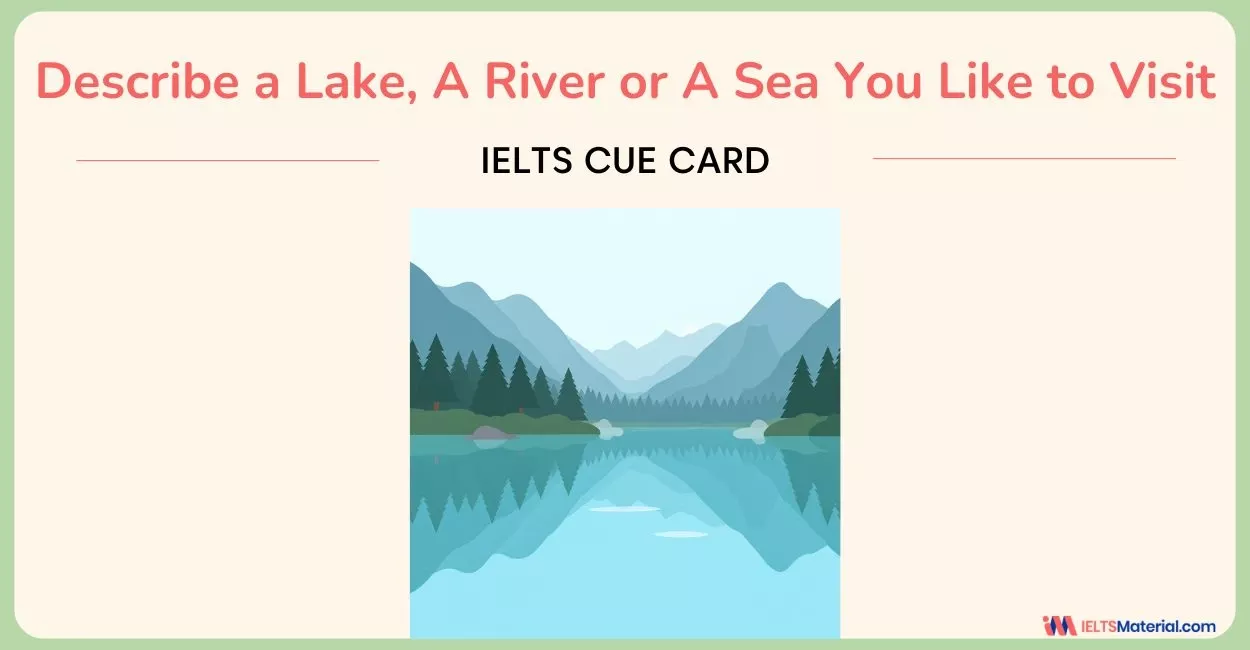
Nehasri Ravishenbagam
Recent Articles

Haniya Yashfeen
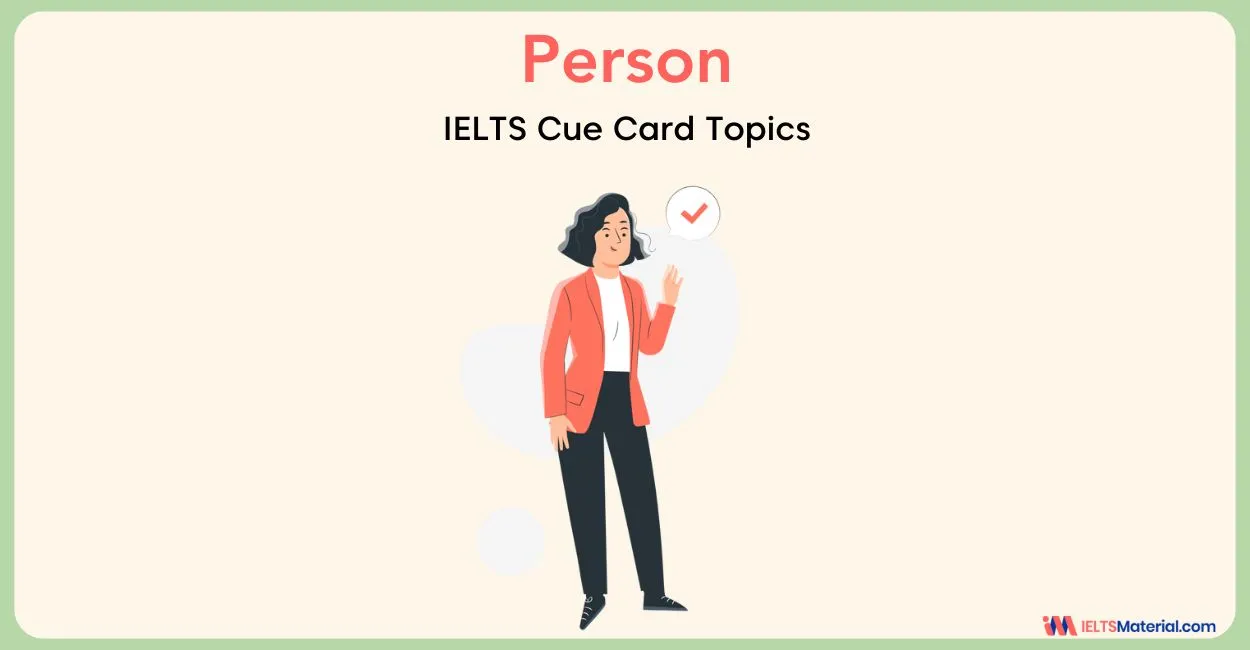
Kasturika Samanta

Nehasri Ravishenbagam


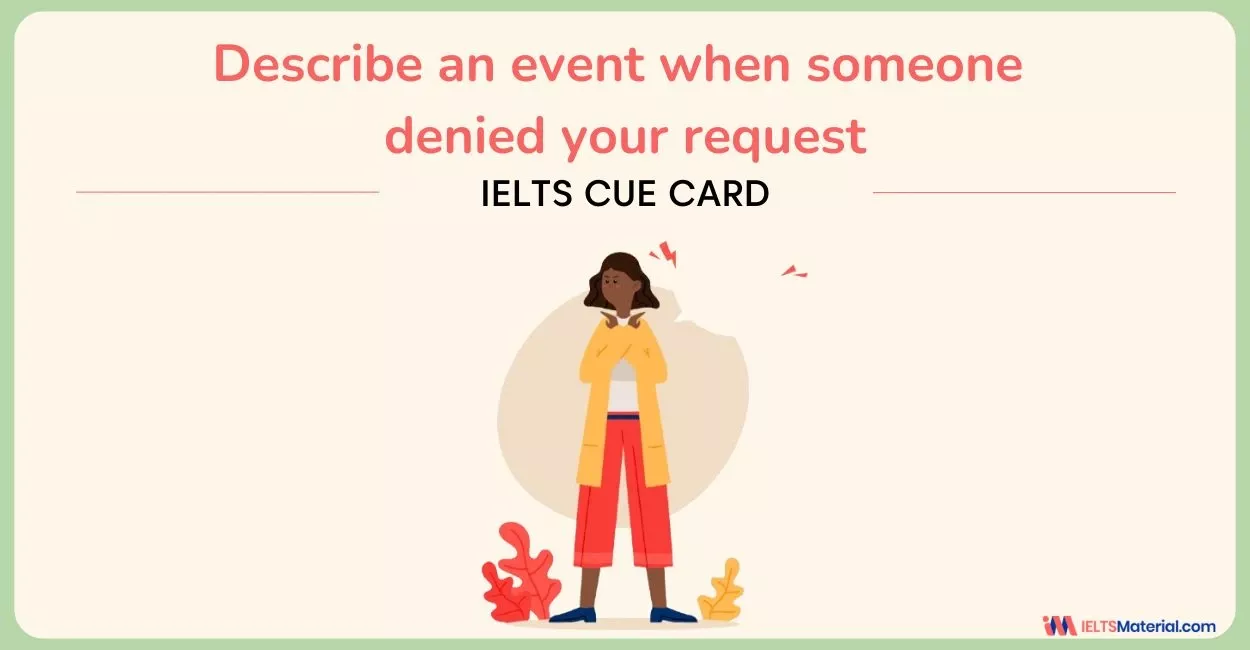
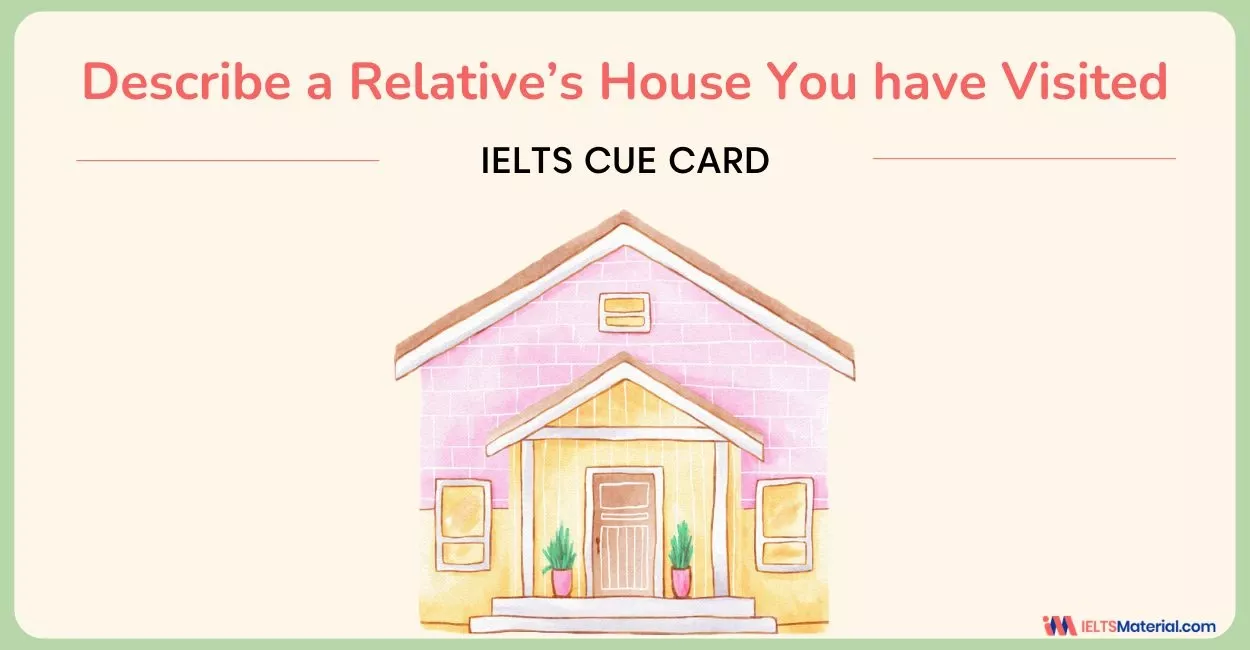
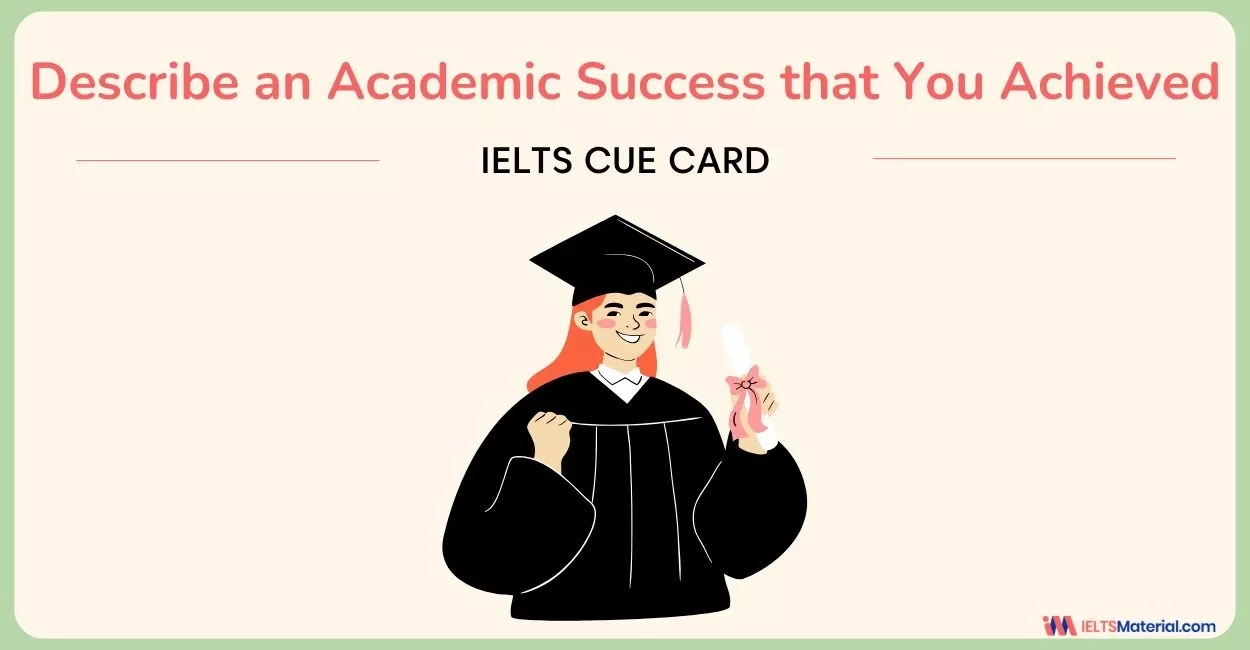
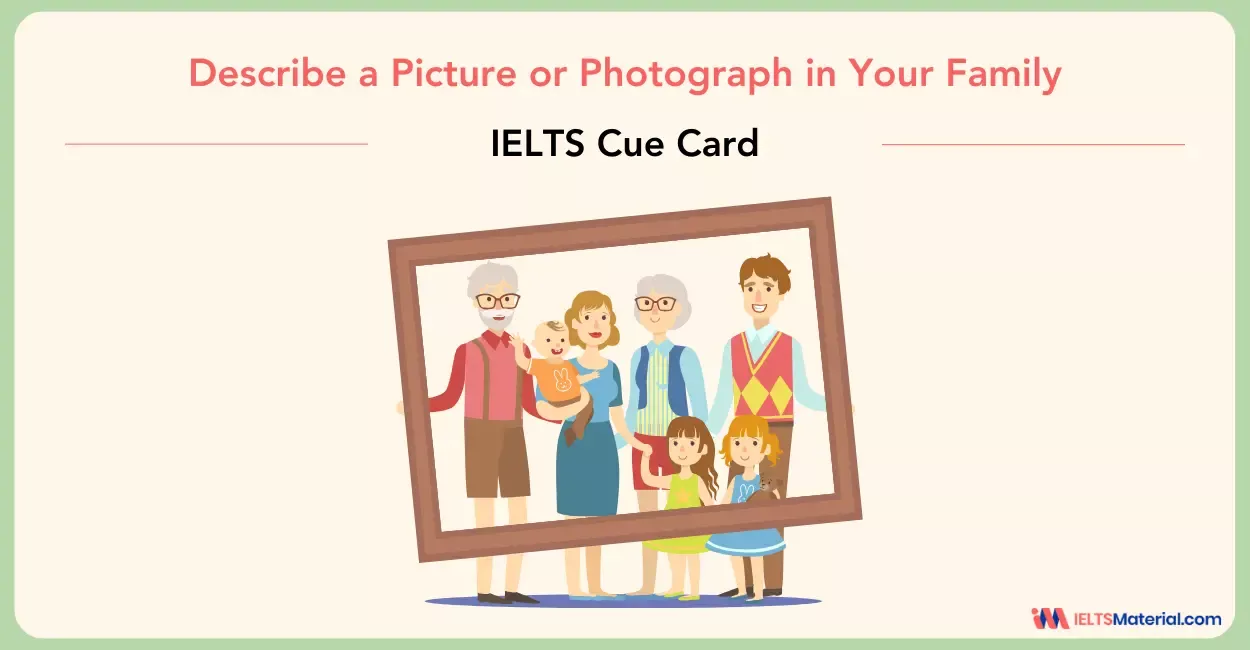


Post your Comments